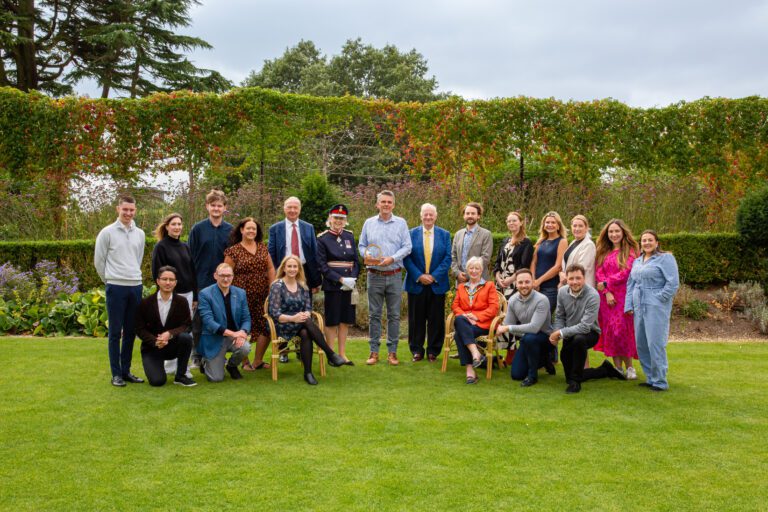A fresh look into sustainability and ethics in the world marketing


In line with the launch of the new iteration of the Brands with Purpose report last month, Alex Holliman and Frankie Brookton from Climbing Trees were joined by Fleurie Amorette-Davies to discuss the new findings and shifts from the last report, two years ago.
The 2023 report tells the story of the need for collective action, accountability and authenticity whether you’re in-house or agency marketer. It’s time to work together to achieve the best for the planet and people.
You can watch our discussion now or dive into the summary below.
Biggest shifts since 2021
Our findings suggest marketers are becoming increasingly authentic around the issues of sustainability and ethics. We found agency leaders reporting a higher sense of responsibility towards creating a sustainable and ethical future compared to last year.
We’ve also seen evolution among in-house marketers. We’ve discovered in-house marketers are speaking more about their sustainability practices in external comms but an even more pleasantly surprising shift is that the gap between what marketers claim to be doing in sustainability and what they’re actually doing has massively reduced!
Another major finding was that among in-house marketers, who are often agency clients, 79% said they want to work with diverse agencies. However only 32% of agencies are investing in diversity. We know representation across the agency industry is a major weakness and something we need to work on improving.
We believe these shifts indicate marketers no longer just “jumping on a trend” that is sustainability and ethics but seeing it as a real issue that they need to play a part in addressing, although it’s crystal clear there are still issues that need more attention.
Shifts in agency priorities
We saw sustainability fall down a place on the priorities rating when compared to its standing two years ago.
Looking at the current business and societal landscape, this makes sense. A shift like this can potentially be attributed to a range of factors, including the rising cost of living, the reverberations of economic shocks, and the challenges of readjusting to business post-COVID-19. Given these circumstances, it appears reasonable for organisations and agencies to emphasise cost efficiencies as a primary concern.
Nonetheless, we strongly believe that this is a temporary step back and that sustainability will regain its prominence among the priorities list.
How can agency leaders fulfil their responsibilities towards sustainability?
Like we mentioned, more agency leaders are seeing themselves as leading the way for sustainability. We believe some of the main ways they can translate this into real action is:
- Seeking accreditations: Becoming a B Corp or gaining other reputable certifications like Planet Mark or EcoVadis can makes agencies think more meticulously about ethical issues and how they can improve. However, always make sure to select the accreditation that best aligns with the agency’s values and goals.
- Education on sustainability: Spread the word on why this sustainability stuff matters and push to weave it into everything your agency does – even when dealing with clients. That’s how you make a real difference and become a source of inspiration for others to do better.
- Commit to being authentic: Agencies should do their best with what they’ve got. No need for fancy moves, just a genuine effort to make sustainable choices with the resources on hand.
Increasing business opportunities through ethical moves
Agencies have a big reason to get on board with ethics and sustainability right now. Believe it or not, in the past year, about 31% of agencies have indicated they had new opportunities asking about their ethical and sustainable policies. The trend is clear: clients care about who they work with. Personally, at Climbing Trees we found since becoming more open about our ethical & sustainable stance we’re drawing in a fresh group of clients who align with our perspectives.
However, the impact goes beyond just securing new business; we believe strong ethical & sustainability policies could also be a game-changer for getting and keeping awesome talent, as many now want to work within organisations that reflect their values. What used to be merely a checkbox item has now transformed into a pivotal factor that holds genuine significance.
How can marketers align with their patterns?
For clients working with agencies. We clearly see clients are really leaning into seeking increased sustainability and ethical efforts from agencies with only a mere 7% not giving it seeing it as a priority. So for clients, a good move would be to weave these expectations into their project briefs. A great resource we recommend is the “Change the Brief Alliance” that helps clients push for real change in agencies they work with.

What’s caused the increase in talking about sustainability?
Two years ago we found 88% of in-house marketers were discussing sustainability in their external communications. Fast forward to today, and that number has shot up to 99%! It’s pretty much a given that just about everyone’s on the sustainability bandwagon. And we hope this is a reflection of everyone’s making at least some real effort to be greener.
What shifted in how marketers take action towards sustainability?
There’s been a notable shift in how marketers are taking action towards sustainability. These days, most of them are focused on implementing, rather than strategising, like two years ago. Which is a brilliant positive shift! Plus, more marketers seem to be getting cosy with talking about what their organisations are doing in this realm. Accreditations are getting a lot of love too – we believe they could be the secret sauce for boosting marketers’ confidence in how they implement change and putting the brakes on greenwashing.
What barriers are there to ethics and sustainability?
From our findings, we’ve observed three main barriers which we believe all link back to each other.
The primary hurdle is the feeling among marketers that it’s not part of their role to handle these matters. Tackling this mindset is crucial, although it can get tricky in environments where such discussions aren’t encouraged. This often leads us to the second barrier, which is a lack of buy-in from senior management, which is key for any real change. And lastly, lack of budget, which would stem from senior management, linking everything together.
Recommendations for marketers aiming to drive ethics and sustainability
- Embrace certifications: Embrace relevant certifications that resonate with your organisation’s values. Commit to it wholeheartedly and let it guide your actions.
- Hold dialogues that matter: Cultivate open dialogues, whether with partners or colleagues. This creates the opportunity to seamlessly integrate these principles into your work and advocate for improved practices.
- Resource with purpose: Allocate resources thoughtfully, not only within your organisation but also when considering partnerships and investments.
- Move from plans to action: Shift your focus from mere strategy planning to concrete actions. Share your journey with authenticity – people are interested in seeing real progress.
- Keep your eyes on the industry: Stay attuned to industry priorities and adjust your approach accordingly. Follow sustainability leaders on platforms like LinkedIn and seek guidance from organisations such as IPA or the Advertising Standards Authority, both of which offer strong frameworks against greenwashing, as well as organisations like BIMA, and the Alliance of Independent Agencies.

Building Brands With Purpose Report
Discover tips on becoming a more sustainable business and stay updated on the latest trends among marketers in Brands with Purpose Report.


